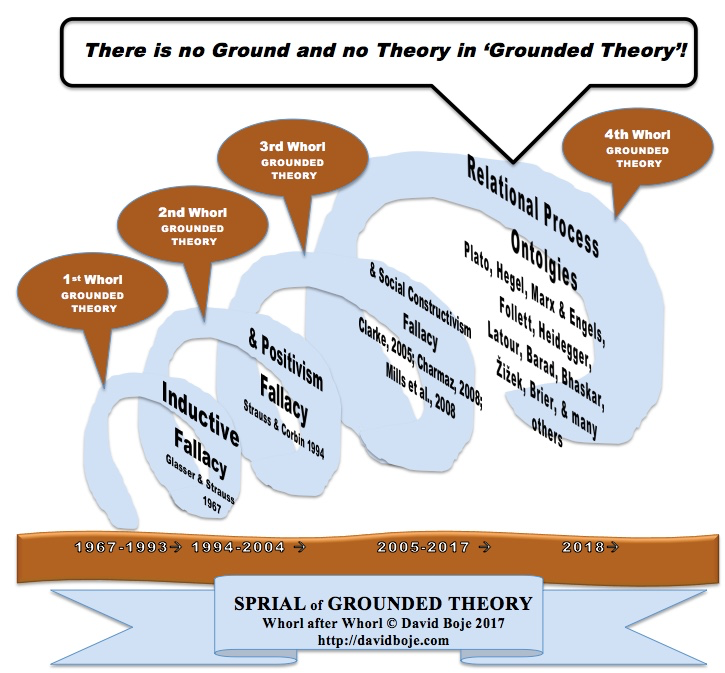
In this approach, you may consider a literature review to be a restrictive process, binding you to prejudices from existing theory. It traditionally proposes a three (or sometimes two) stage iterative coding approach, first creating open codes (inductive), then grouping and relating them with axial coding, and finally a process of selective coding. The way most people think about grounded theory probably links closest to the Strauss and Corbin (1990) interpretation of grounded theory, which is probably more systematic and concerned with coding and structuring qualitative data. Coding is considered to be very inductive, having less initial focus from the literature. Here the common coding types are substantive and theoretical – creating an iterative one-two punch which gets you from data to theory. However, a gap is recommended so that literature is not examined first (like when doing a literature review) creating bias too early, but rather engaging with existing theory as something to be challenged. Here everything is data, and you should include fieldwork notes as well as other literature in your process. The idea is that you examine data and discover in it new theory – new ways of explaining the world. Realistically there are several main types of grounded theory:Ĭlassical grounded theory is based on the Glaser and Strauss (1967) book “ The Discovery of Grounded Theory”, in which it is envisaged more as a theory generation methodology, rather than just an analytical approach. And you can find many examples in peer-reviewed literature describing grounded theory as if there is only one approach. If you are lucky, you’ll get a reference, probably to Strauss and Corbin (1990). And it can be a problem: a quick search of Google Scholar will show literally hundreds of qualitative research articles with the phrase “ grounded theory was used” and no more explanation than this.


One of my favourite quotes on grounded theory is from Dey (1999) who says that there are “probably as many versions of grounded theory as there are grounded theorists”. Watch a video to learn more, or read on below: However, it is also a methodological box of worms, with a number of different approaches and confusing literature. An approach that is often overused, it is a valuable way of approaching qualitative research when you aren’t sure what questions to ask. There is a lot more to it, and a myriad of different approaches.īasically, grounded theory aims to create a new theory of interpreting the world, either when it’s an area where there isn’t any existing theory, or you want to challenge what is already out there. “It’s where you make up as you go along!”įor a lot of students, Grounded Theory is used to describe a qualitative analytical method, where you create a coding framework on the fly, from interesting topics that emerge from the data.


 0 kommentar(er)
0 kommentar(er)
